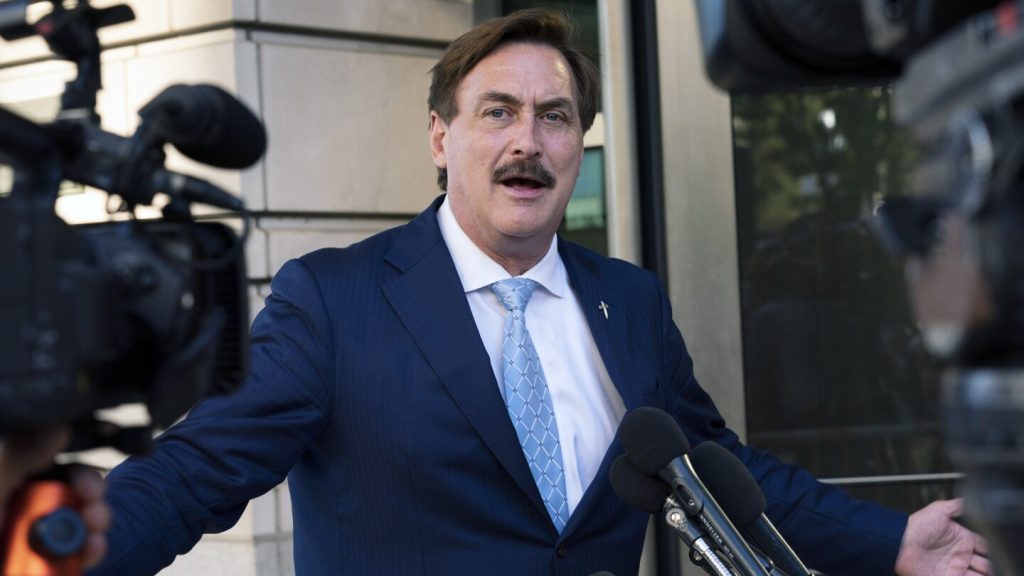The U.S. Supreme Court has denied a petition by MyPillow founder Mike Lindell to consider his challenge to the legality of the FBI’s seizure of his cellphone at a restaurant drive-through. Lindell, a well-known supporter of false claims regarding the 2020 presidential election, alleged that the confiscation of his phone violated his constitutional rights against unlawful search and seizure and was an attempt to suppress his freedom of speech. However, the 8th Circuit Court of Appeals disagreed, stating that Lindell’s objective in the case was to interfere with an ongoing criminal investigation.
In February, Lindell turned to the Supreme Court seeking reconsideration of the lower court rulings but his petition was denied on Monday. This decision adds to a series of legal and financial setbacks for Lindell, who is also facing defamation lawsuits from two voting machine companies. Additionally, he has faced financial challenges after losing major advertising platforms and being dropped by national retailers. A judge recently affirmed a $5 million arbitration award against Lindell for his claims that China interfered in the 2020 election.
Lindell’s troubles have escalated as he continues to face legal challenges and financial difficulties. The denial of his petition by the Supreme Court is seen as a blow to his efforts to contest the seizure of his cellphone by the FBI. The ongoing legal battles and financial struggles have put a strain on Lindell’s businesses, including MyPillow, which has suffered from a credit crunch and loss of major advertising platforms. Despite his efforts to challenge the legal actions against him, Lindell has faced continuous setbacks in the courts.
The case involving Lindell’s cellphone seizure has highlighted the contentious issues surrounding the 2020 election and the spread of misinformation. Lindell’s promotion of false claims about election fraud has led to legal repercussions and financial losses for his businesses. The denial of his petition by the Supreme Court indicates that his legal challenges are unlikely to succeed, further complicating his situation. The ongoing legal battles and financial troubles have cast a shadow over Lindell’s reputation and businesses, raising questions about his future prospects.
The rejection of Lindell’s petition by the Supreme Court marks a significant development in his legal troubles. Despite his efforts to challenge the FBI’s seizure of his cellphone, the courts have consistently ruled against him. The ongoing legal battles and financial setbacks have taken a toll on Lindell’s businesses and reputation. The denial of his petition underscores the challenges he faces in overcoming the legal and financial obstacles that have arisen from his actions related to the 2020 election. As Lindell continues to navigate these difficulties, the future remains uncertain for him and his businesses.


